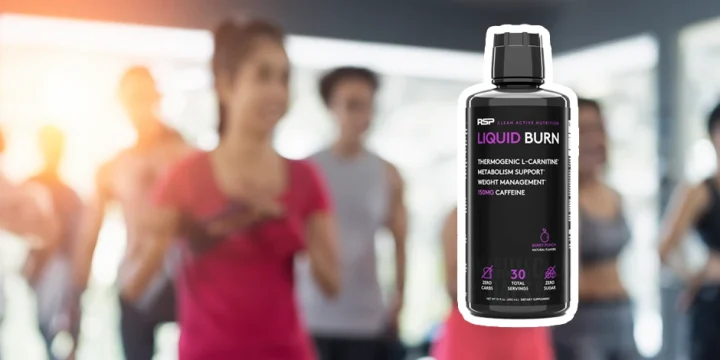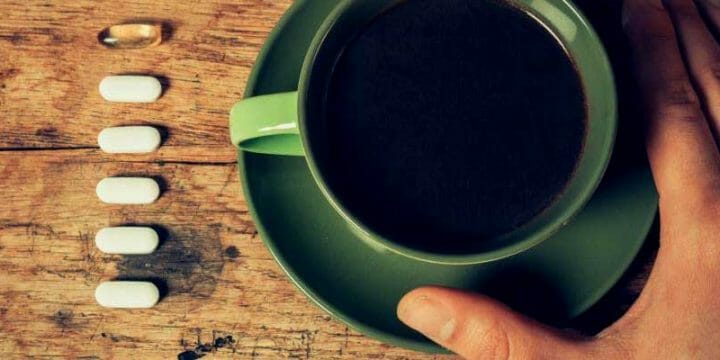Many people recommend working out on an empty stomach as a great way to burn some extra energy or fat first thing in the morning.
Tricia Aricia Arcaro Turton, a human biomechanics specialist and boxing coach at Arcaro Boxing, says that if one works out first thing in the morning, it is best to do so on as little food as possible.
In this article, I will look at fasted cardio, weight loss, and how to go about exercising on an empty stomach safely.
Read on to find out more.
Quick Summary
- Exercising on an empty stomach, known as fasted cardio, is generally safe but can affect individuals differently, with some experiencing dizziness or nausea due to low blood sugar.
- Fasted state exercise, popularized by figures like Dwayne "The Rock" Johnson, is believed to burn more fat by using stored fat reserves for fuel.
- A study published by the National Institutes of Health (NIH) suggests that fasted cardio might have the opposite effect, potentially causing the body to store more fat.
- Personally, the concept of fast cardio is intriguing but requires careful consideration of individual health and fitness goals.
Is It Safe To Workout On An Empty Stomach?

Yes, it is perfectly safe to undertake fasted cardio or go through your high-intensity workout on an empty stomach.
It is also called a fasted state exercise, which I will discuss in the next section.
But before exercising on an empty stomach, you should first understand how this level of high-intensity fat-burning may affect your body and your health.
While some can exercise in a fasted state, others may become dizzy, light-headed, or even nauseous.
Low blood sugar is usually the cause, and so if you have naturally low blood glucose levels, it might not be the best choice.
What Is A Fasted State Exercise?
Fasted state exercise or fasted cardio is when you exercise on an empty stomach.
"I wake up early in the morning, generally around 4 o'clock, and I'll do my cardio on an empty stomach. Stretch, have a big breakfast, and then I'll go train."
- Dwayne "The Rock" Johnson
It means that for most people, they will work out early before they have their breakfast. The word for breakfast means to break the fast, so it makes sense.
Pros Of Working Out On An Empty Stomach

You Burn More Fat
Yes, it is possible to burn more fat if you work out hungry.
The theory behind fasted state exercise is that you burn through your stored fat reserves by doing your workout in a fasted state.
Phillip Wayman, co-founder of Fastic, explains this to mean that exercising on an empty stomach forces the body to burn stored fat for fuel instead of carbohydrates — thus helping you lose weight.
The current research and studies into whether this theory holds have had mixed results.
While some point to an increase in burning fat and weight loss, others show a dip in performance and recovery times.
A study published by the National Institutes of Health (NIH) shows the opposite effect and points to possible side effects that may cause your body to store more fat, and we'll talk about that more below [1].
Cons To Working Out On An Empty Stomach

Exercising while in a fasted state might help burn fat.
Still, the lack of energy can also lead to health issues such as an injury during a high-intensity workout or a severe crash or binge post-workout.
The fitness benefits aren’t without their drawbacks, and we'll look at a few in detail now.
1. If You Fast, Your Body Will Store More Fat When You Eat
This is a common myth that is spread online and through the gym locker room.
While it isn't necessarily true, it does have a small basis in truth. When fasting correctly (at least 48 hours for women and 72 for men), you need to be careful about what and when you eat coming out of the fast.
If you are doing fasted cardio and just delaying your meal until after your workout, this isn't something you have to worry about.
You should still be aware that you may be a bit extra "cravey", though.
Thus, you need to avoid carbs, sugars, or unhealthy foods. Instead, you can snack on a smoothie, focus on protein, or have a fruit platter for your post-exercise breakfast.

2. Without Proper Energy From Food, You'll Crash Hard Into The Wall
This is pretty sound advice, and it's something that each individual will have to gauge for themselves.
But, if you've ever run long distances, you'll know the wall. It's the point of no return, the knee-buckling max-out that summons superhuman strength in some, and others smash into it and crumble.
The real problem with putting your fasted body to work is that the low energy or fuel reserves could cause you to hit the wall quite suddenly, which could lead to injury.
So when you exercise like this, make sure to build up slowly, let your body get used to using fat as fuel.
Don't jump straight into high intensity on day one. Instead, muscle your way up slowly and surely, don't hit the wall with your max weight precariously positioned overhead.
3. Less Energy Means Less Muscle
Pushing your body to the limit is not only necessary to see improvement but a great way to ensure every day you're exercising, you see the benefits.
Without the energy from eating a proper meal, you might not have the fuel that your muscle is used to using. So it can take some adjustment, and for some, it might not be worth it.
Try a day's exercise using your body fat as fuel and another with healthy eating, see where the wall is for both and if there's a difference. I would recommend low intensity or steady-state exercise for fat burning anyway. A fasted 90 minutes using your fat for energy every morning is ideal for cutting.

4. If You Don't Feed Your Body It Won't Be Able To Recover
This is another one with some truth but can easily be offset by a little planning and healthy eating.
Without the energy you usually get from food, you might find your workouts leave you feeling rougher for longer as you use up your stored glycogen reserves.
Some people claim that workouts on an empty stomach require longer recovery times.
It may be due to fatigue or pushing a little further than perhaps you should. It could also be because you aren't taking in the necessary protein post-workout to help your muscles heal.
If you dont have time to eat before training, here is our article about fast healthy options for right before training.
Healthy Tips For Working Out First Thing In The Morning

1. Hydrate.
As soon as you wake up, drink at least 100 ml of water. It kick-starts your body and has many benefits that extend beyond your workout.
According to insights from the National Institutes of Health (NIH), water is one of the purest things you can drink, and it may alter metabolism, promoting weight loss [2].
The Japanese water method (drinking multiple glasses of warm water as soon as you get up each morning) is something I follow, whether I do fasted exercise later or not.
2. Have a post-exercise meal ready.
Even if you don't want to eat before your workout, make sure to plan what you're going to have after. Protein is vital to helping your muscles recover, and you'll want something that replenishes your depleted glycogen stores too.
An excellent post-workout protein shake is my personal favorite.
3. Start with a less intense workout.
I like to go hard, and I like to go fast in the morning. It's the best way to wake up. High-intensity exercise is not something you want to dive right into during a fasted state, though. Instead, build up to it with 30 minutes of something that requires less energy, like yoga.
4. Listen to your body.
If you start to feel faint, dizzy, nauseous, or particularly exhausted, then you should stop. Do not push yourself beyond the wall the first time you try fast-state exercise. Learn your body's limits and find a new normal.
References:
- https://www.ncbi.nlm.nih.gov/pmc/articles/PMC6983467/
- https://pubmed.ncbi.nlm.nih.gov/18787524/
About The Author
You May Also Like






